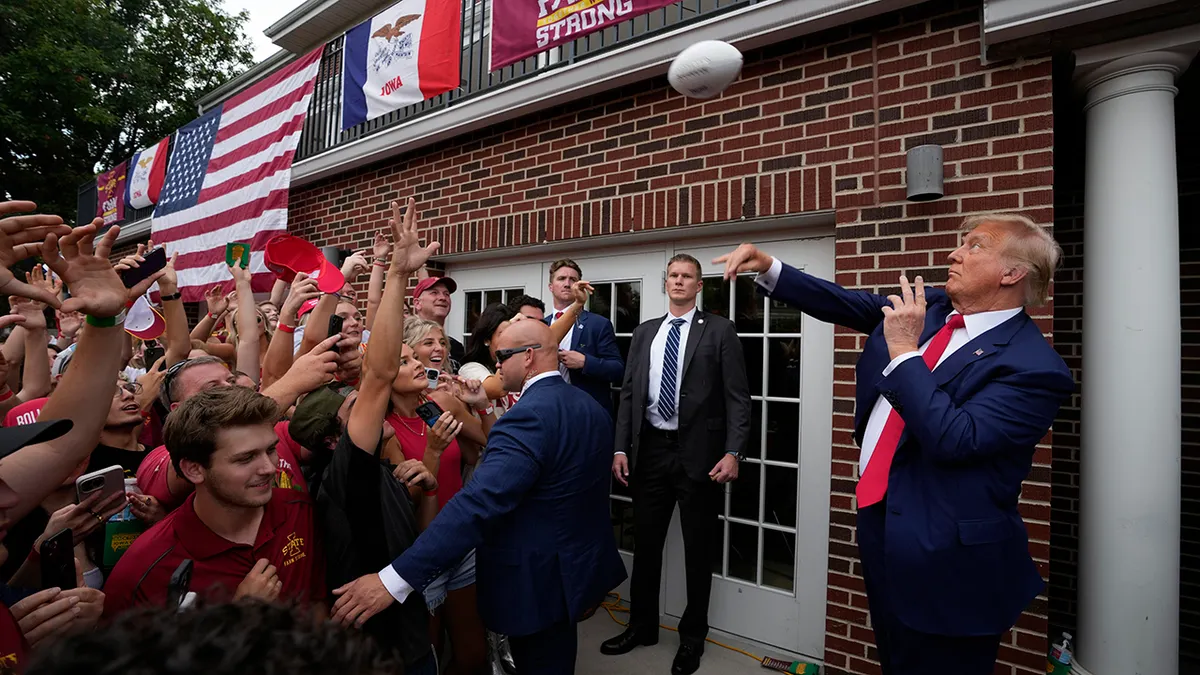Donald Trump secured a resounding victory in the Iowa caucuses on Monday, January 15, 2024, sending a strong message that he is a formidable contender for the GOP’s 2024 presidential nomination. The win marked the first step in Trump’s quest for a third consecutive nomination, setting the stage for a months-long campaign.
DeSantis and Haley Trail as Trump Takes Iowa
As the results rolled in, it remained uncertain who would emerge as the second-place finisher between Florida Governor Ron DeSantis and former U.N. Ambassador Nikki Haley. Despite challenging conditions, including life-threatening cold and dangerous driving conditions, caucus voters gathered across the state in schools, churches, and community centers.
The significance of Trump’s victory lies in the fact that Iowa has been an inconsistent predictor of the eventual Republican nominee. The last time a Republican candidate won in Iowa and went on to become the party’s standard-bearer was George W. Bush in 2000. Nevertheless, Trump, undeterred by historical patterns, was already looking ahead to a potential general election matchup against President Joe Biden.

Addressing hundreds of supporters at the Horizon Events Center in Clive, Iowa, Trump criticized Biden, stating, “He is totally destroying our country.” The former president expressed his belief that the nation had declined in the past three years, claiming that people were now laughing at the United States.
In contrast, Biden’s team announced impressive fundraising numbers, indicating that he and the Democratic National Committee raised over $97 million in the last quarter of 2023, finishing the year with $117 million in the bank. This financial strength was portrayed as preparation for a possible rematch against Trump, who is still engaged in the primary.
The Associated Press declared Trump the winner at 7:31 p.m. CST based on early returns and the results of AP VoteCast, a survey of caucus-goers. Trump had a significant lead, with initial results from eight counties showing him garnering more than half of the total votes.
DeSantis and Haley were engaged in a battle for the position of the top alternative to the former president. Haley aimed to make a strong showing in New Hampshire, appealing to the state’s independent voters leading into the January 23 primary. DeSantis, on the other hand, planned to visit New Hampshire after a stop in South Carolina, a conservative stronghold where the February 24 contest could prove pivotal.
Before departing Iowa, Haley subtly took a jab at Trump, urging voters to move forward without vendettas and with a sense of hope. She promised to focus on making them proud if given the opportunity. Trump, undeterred by legal challenges, planned to fly to New York to attend a court hearing on potential additional damages in a sex abuse and defamation case. He would then proceed to New Hampshire for a rally.
Iowa Victory: Trump
Trump’s strength in Iowa was evident across urban, small-town, and rural communities, according to AP VoteCast. He also performed well with evangelical Christians and those without a college degree, drawing support from a majority of caucus-goers identifying with his “Make America Great Again” movement. However, he faced relative weakness in the suburbs, where only about 4 in 10 supported him.
AP VoteCast, a survey of over 1,500 voters planning to participate in the caucuses, provided insights into the preferences of the electorate. Entrepreneur Vivek Ramaswamy, former Arkansas Gov. Asa Hutchinson, and former New Jersey Gov. Chris Christie, who suspended his campaign last week, were also on the ballot in Iowa.
Trump’s success in the Iowa caucuses highlighted the Republican Party’s apparent reluctance or inability to move on from a candidate with a controversial track record. Despite facing 91 felony charges across four criminal cases, including his role in the January 6, 2021 insurrection at the U.S. Capitol, Trump strategically used his legal challenges as a political asset.
Throughout the week leading up to the caucuses, Trump made voluntary appearances before judges in New York and Washington, ensuring that his legal drama received national coverage. His campaign increasingly echoed authoritarian rhetoric, framing it as a crusade of retribution. Trump openly discussed using the power of government to pursue his political enemies and employed divisive rhetoric about immigrants entering the U.S. illegally.
Also Read: Inside the Iowa Caucuses: A Blizzard of Ambition, Betrayal, and the Battle for Trump’s Crown
Despite the legal challenges, Trump’s reputation appeared unharmed, with about three-quarters of respondents in the AP VoteCast survey viewing the charges against him as political attempts to undermine him rather than legitimate efforts to address important issues.
The challenging conditions of the Iowa caucuses, including record-breaking cold temperatures, added another layer of difficulty for participants. Forecasters warned of “dangerously cold wind chills,” reaching as low as 45 degrees below zero Fahrenheit, leading to the potential for frostbite and hypothermia in a matter of minutes if not properly dressed for the conditions.

I don’t think the title of your article matches the content lol. Just kidding, mainly because I had some doubts after reading the article.